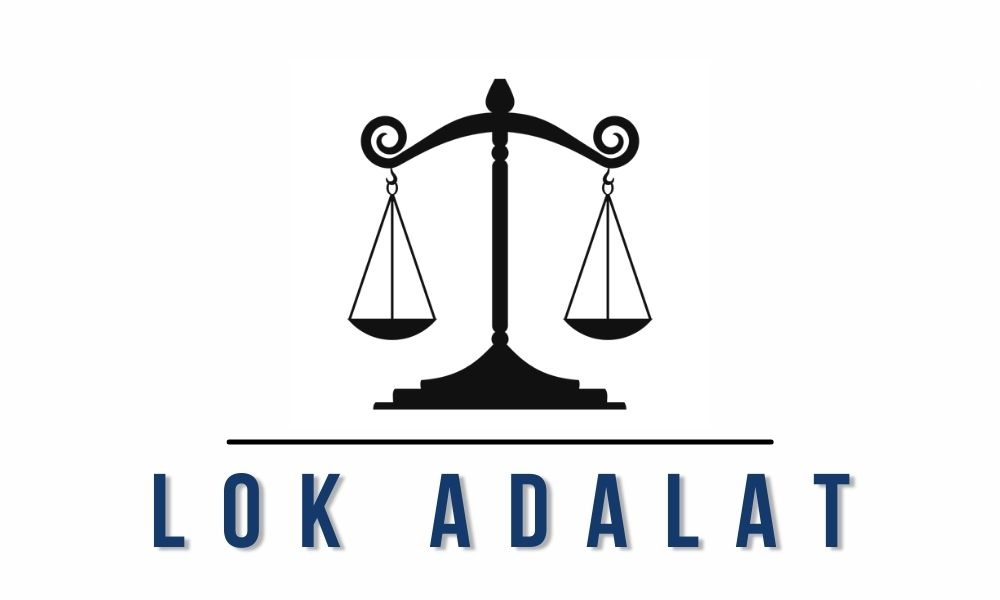Lok Adalat Award cannot be challenged in Writ Court

Lok Adalat Award Cannot Be Challenged Before Writ Court Unless Fraud Or Lack Of Jurisdiction Is Alleged: Rajasthan HC.
The Rajasthan High Court observed that an award of Lok Adalat cannot be assailed in a routine manner before the Writ Court unless fraud or lack of jurisdiction is alleged. The Court was hearing a batch of Writ Petitions filed by RSRTC against the awards passed by the National Lok Adalat as well as by the workmen seeking implementation of such awards. The bench of Justice Anoop Kumar Dhand observed, “…award passed by the Lok Adalat shall be final and the same cannot be assailed in a routine manner, before the Writ Court unless allegation of fraud are there against a party. An award can be assailed only if the same is passed without jurisdiction or is obtained through impersonation or playing fraud with the Court.”
To make the picture clear, the Court explained the facts of one of the Writ Petitions where the services of workman Virendra Singh were terminated on the allegations of collecting fares from passengers without issuing tickets. Aggrieved by the order, he approached the High Court, but his petition was initially dismissed on the ground that there was an alternative remedy available under the Industrial Disputes Act. The Division Bench allowed his appeal noting that his termination was stigmatic and violated principles of natural justice and ordered his reinstatement without back wages. The matter was referred to the National Lok Adalat which reinstated Singh without back pay but treated his service as continuous for pension and gratuity purposes. RSRTC challenged the award on the technical ground that the settlement was signed by a different counsel without consent from their primary legal representatives.
While explaining about the Lok Adalat the Court said, “It is a forum where disputes/ cases pending before the Court of Law are settled/ compromised amicably. Lok Adalat aims to provide a cost-effective, timely and amicable resolutions of the disputes, reducing the case load of the Courts and promoting social harmony. The Lok Adalat is a way where both parties win and no one loses.”
The Court mentioned the Supreme Court decision in P.T. Thomas v. Thomas Job reported in (2005) 6 SCC 478, where the SC has held that the Court’s attempt should be to give enforceability to the award passed by the Lok Adalat and not to defeat the same on technical grounds. The Court dismissed the Writ Petitions filed by the RSRTC.
In the case of P.T. Thomas v. Thomas Job reported in (2005) 6 SCC 478, the Hon’ble Apex Court has held that the Court’s attempt should be to give enforceability to the award passed by the Lok Adalat and not to defeat the same on technical grounds.
Finally, the Court allowed the Writ Petitions filed by the workmen for implementation of the awards, passed by the National Lok Adalat and directed the respondent-RSRTC to implement the awards passed in favour of the workmen.
Cause Title: Virendra Singh v. Rajasthan State Road Transport Corporation
Appearance: Appellant: Adv. Sumit Kumar Jain, Adv. G. L. Sharma and Adv. Ankul Gupta
Respondent: Senior Adv. R. N. Mathur and Adv. Anubodh Jain.
Bloggers’ Comment;
Fraud play obtaining order can be reported to Writ court using the provision of section 44 of the Indian Evidence Act, 1972 or S-38 of BSA-2023.
Civil Procedure Code, 1908 (CPC) – Section 89 – Execution of decree – Suit for mandatory injunction for recovery of possession – Matter settled in Lok Adalat – Award provided for sale of building to appellant or his nominee within a period of two years on payment of Rs. 9.5 lakhs – Sale deed not executed within time fixed by Lok Adalat – High Court dismissed execution and allowed revision against order of subordinate Judge directing appellant to deposit the amount – Respondent was obliged to execute sale deed within two years in view of award of Lok Adalat and decree of eviction against him – Settlement of dispute was a concession in his favour giving breathing time to give vacant possession – Order passed by High Court in revision set aside – Respondent directed to execute sale deed within two weeks.
Legal Services Authorities Act, 1987 – Section 21 – Award of Lok Adalat is a decision of Court arrived at by simple method of conciliation – Its decree is enforceable and cannot be challenged by regular remedies including writ under Article 226 of the Constitution.
Civil Procedure Code, 1908 (CPC) – Section 96 – Appeal – Award of Lok Adalat challenged in appeal – Maintainability – Award of Lok Adalat being passed with consent of parties, no appeal lies against the award.
The Lok Adalat shall proceed and dispose the case and arrive at a compromise or settlement by following the legal principles, equity and natural justice. Ultimately the Lok Adalt passes and award, and every such award shall be deemed to be a decree of Civil Court or as the case may be which is final.
The Lok Adalat will pass the award with the consent of the parties, therefore there is no need either to reconsider or review the matter again and again, as the award passed by the Lok Adalt shall be final. Even as under Section 96(3) of C.P.C. that “no appeal shall lie from a decree passed by the Court with he consent of he parties”. The award of the Lok Adalat is an order by the Lok Adalat under the consent of the parties, and shall be deemed to be decree of he civil Court, therefore an appeal shall not lie from the award of the Lok Adalt an under Section 96(3) C.P.C.
